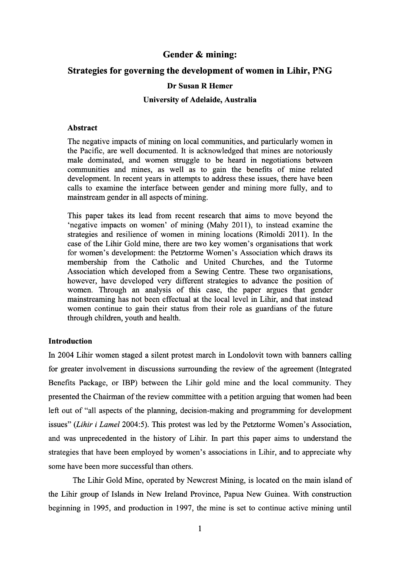
- Report year:2011
- Report author: Dr Susan R Hemer
- Organisation: University of Adelaide, Australia
The negative impacts of mining on local communities, and particularly women in the Pacific, are well documented. It is acknowledged that mines are notoriously male dominated, and women struggle to be heard in negotiations between communities and mines, as well as to gain the benefits of mine related development. In recent years in attempts to address these issues, there have been calls to examine the interface between gender and mining more fully, and to mainstream gender in all aspects of mining. This paper takes its lead from recent research that aims to move beyond the 'negative impacts on women' of mining (Mahy 2011), to instead examine the strategies and resilience of women in mining locations (Rimoldi 2011)
